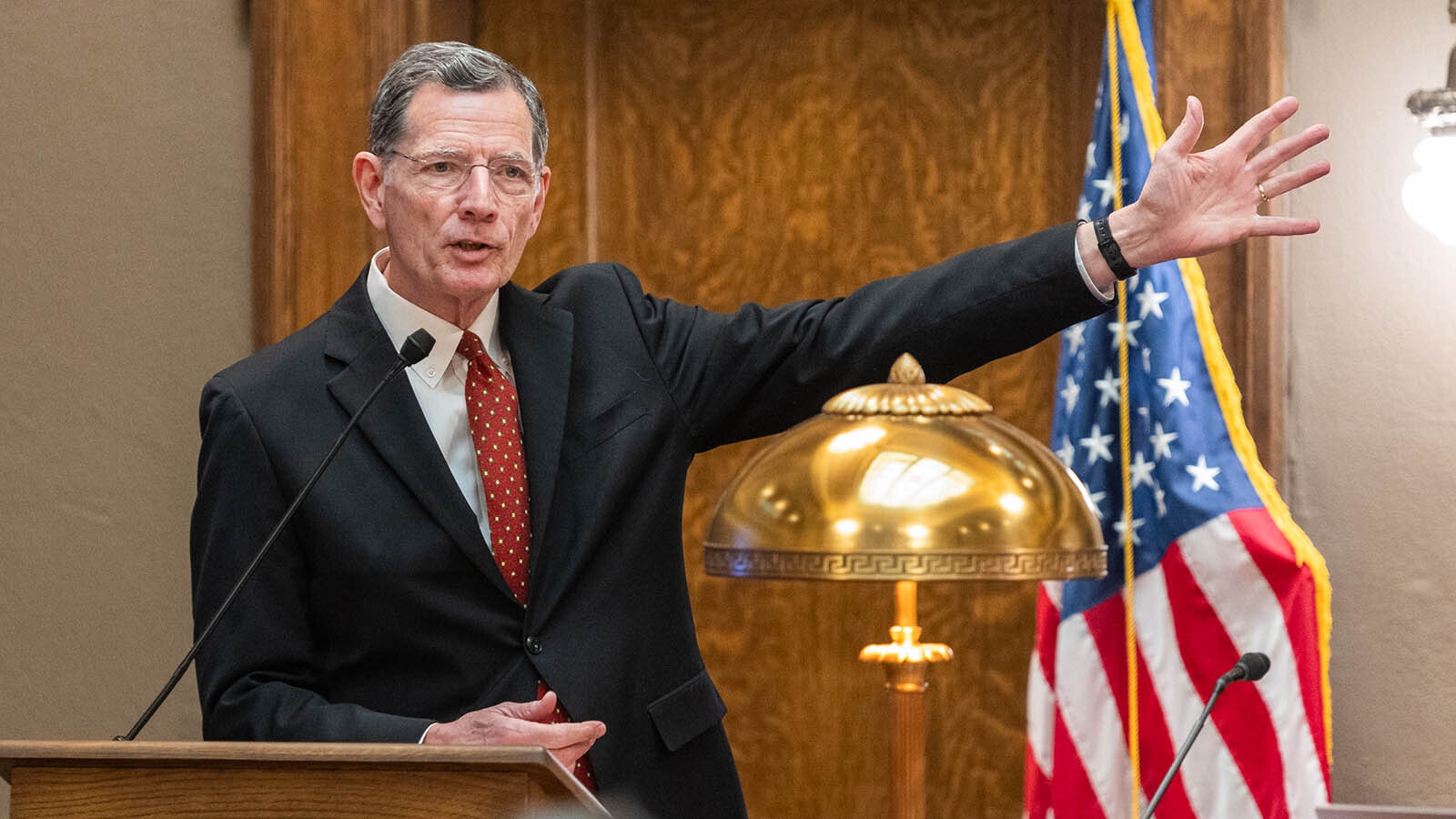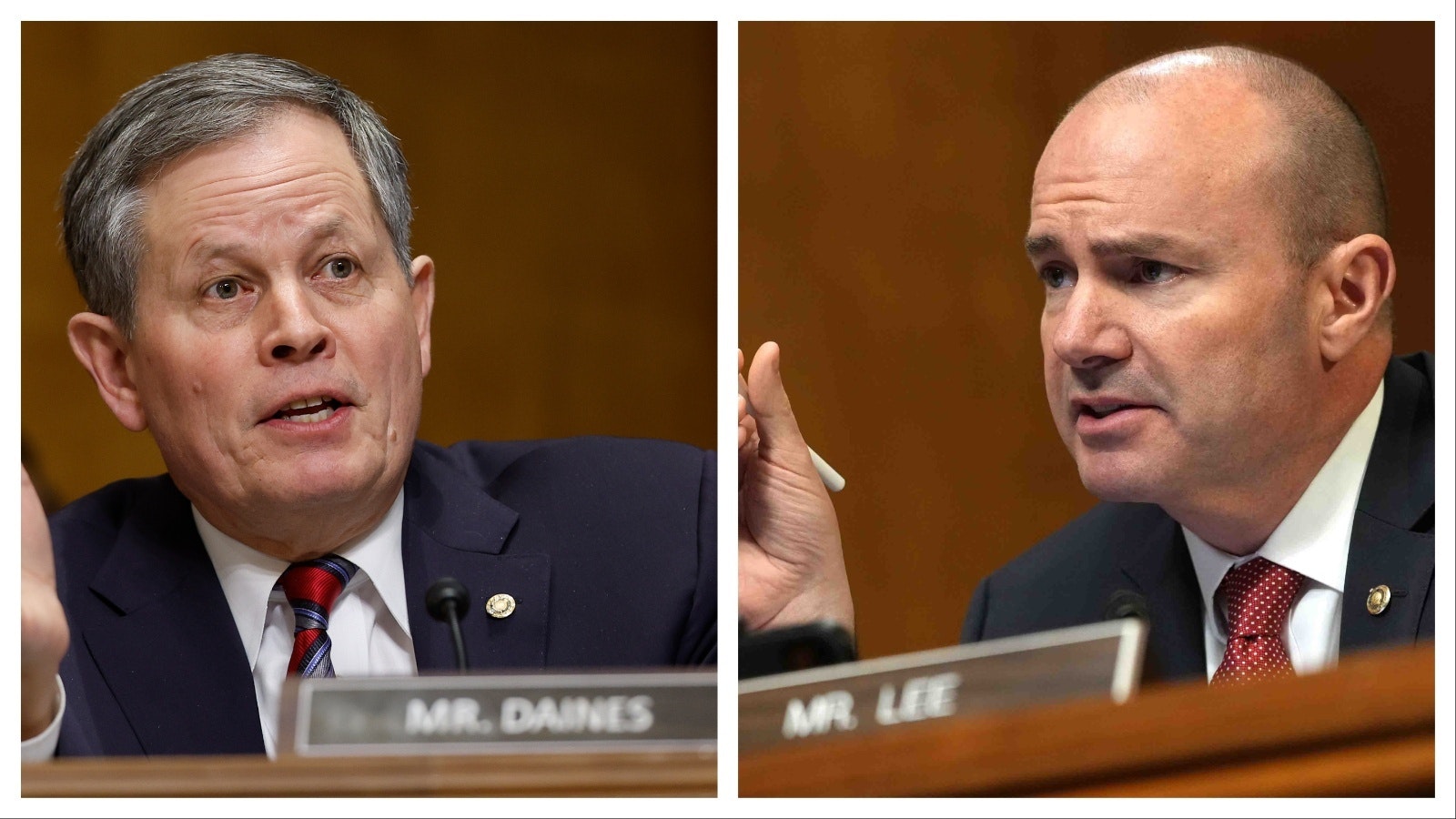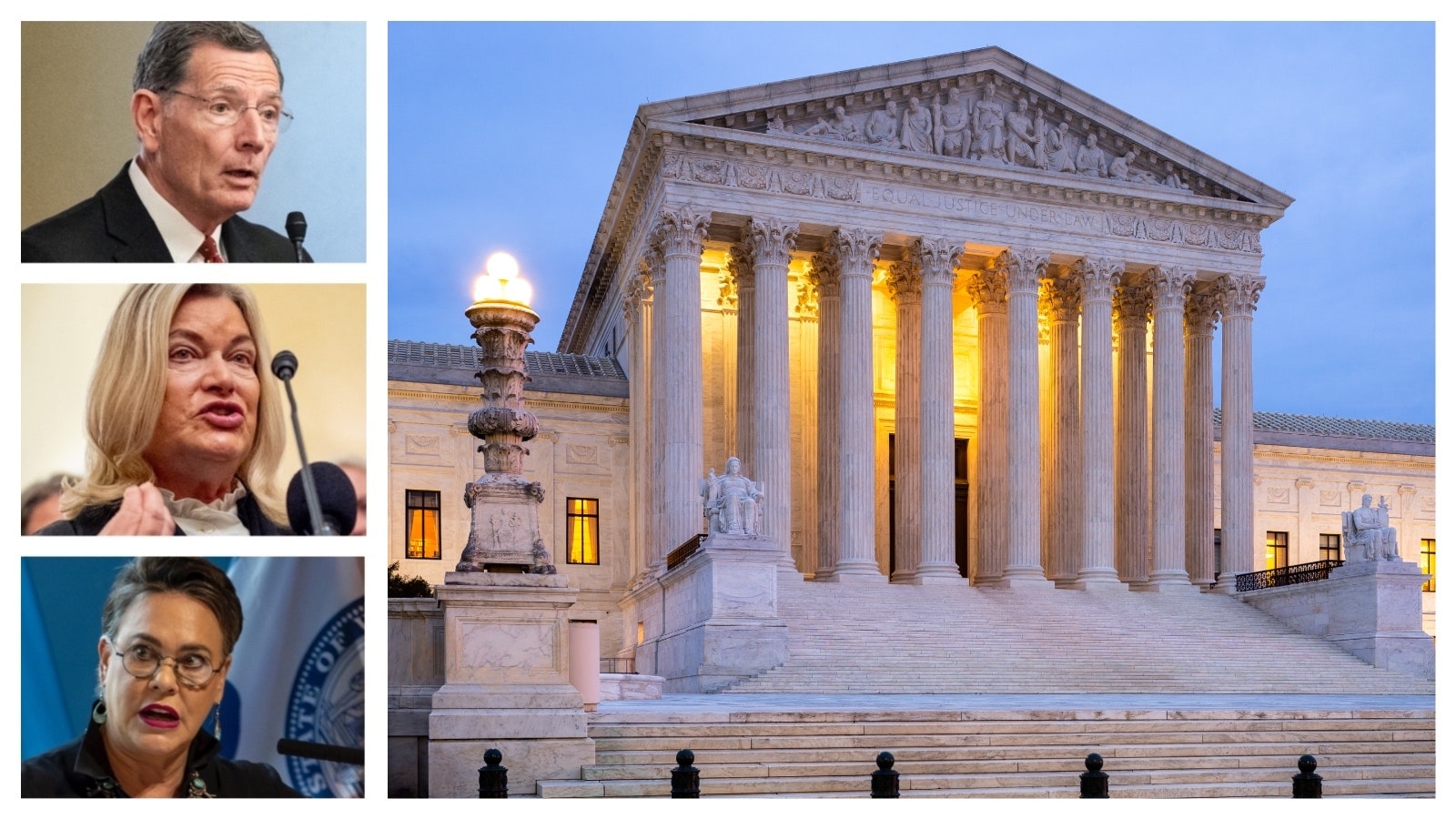When state Rep. Barry Crago, R-Buffalo, started devising his property tax relief bill last year, he and Rep. Steve Harshman, R-Casper, reached out to Wyoming Department of Revenue Director Brenda Henson to see if it would be feasible to enact his legislation immediately for the 2024 tax year.
“We tried to work with the people that actually have the power to implement the law we have to pass,” Crago said.
This led Henson to direct her staff Jan. 3 to host a presentation to the 23 Wyoming county assessors on how this bill, if it passes, would be implemented.
That’s drawn some questions from leading members of the Wyoming Freedom Caucus, who sent a letter to Henson demanding an explanation for spending state resources on something that hasn’t happened yet, or could never happen.
“Regardless of the merits of the bill, the process undertaken by your department creates the appearance of corruption and lacks the transparency needed to appropriately enact legislation,” the letter reads.
In the letter sent to Henson on Jan. 24, Reps. John Bear, R-Gillette, and Rachel Rodriguez-Williams, R-Cody, accuse Henson of lobbying Wyoming’s county assessors to support the bill and prematurely establishing rules and regulations for it.
“The appearance is that the department began to promulgate rules prior to a bill being introduced, debated or voted on,” Bear told Cowboy State Daily.
Despite the sharp tone of the letter, Bear said it was only sent to give Henson a chance to clear up any misconceptions about the situation.
In their letter, the legislators remind Henson what the stated purpose of her property tax division is and that “there is clearly a difference between training and guiding local governmental agencies and lobbying county elected officials.”
Henson’s Response
In a Jan. 31 response, Henson thanks the legislators for stating the role of her department, but denies most of the accusations.
She said her staff talked to the county assessors about the bill to show that the current state database used by the assessors would be capable of immediately executing Crago’s House Bill 45 if it were to pass into law.
“These discussions help to ensure there are no unintended consequences,” Henson wrote.
Bear and Rodriguez-Williams also accuse the department staff of threatening assessors to support House Bill 45 or they will be blamed for not providing tax relief. Henson denied that allegation and said the warning the Freedom Caucus is concerned about was actually made by an individual county assessor, not her office.
Henson also said her department has not established any new rules ahead of the legislative session, but did ask assessors where terminology in the rules may need some clarifying to implement the proposed legislation.
To make HB 45 happen, Henson said her department will need to adopt emergency rules, adding that “communication and transparency during the early stages benefits all.”
For Bear, this is still a step too far, as he believes the presentation should have been hosted by Crago and Harshman. Any action by Department of Revenue staff, he said, should wait until the bill passes into law.
“Presenting how the bill could be implemented by the assessors should be considered training and should have fallen into the ‘emergency rulemaking’ time frame once a bill has passed,” he said. “The potential to waste valuable government resources on a bill that has not been introduced, debated or voted on is high. The percentage chance of a personal bill passing is quite low.”
What Does The Bill Do?
Crago’s sweeping bill establishes a property tax exemption for single-family residential structures based on their prior year assessed value and forbids tax growth from the prior year to exceed 5%, serving the same function as a cap.
HB 45 has been endorsed by the Wyoming Caucus of which Crago is a member.
One of the most significant aspects of the bill is that if signed by Gov. Mark Gordon, it would go into effect immediately for the 2024 tax year. This would require county assessors to mail tax assessment schedules no later than April 22.
At the earliest, Gordon likely couldn’t sign HB 45 into law until late February. The short window between then and April 22 is what led the lawmakers to reach out, Henson and Crago said, and her department to reach out to the assessors for input and verify internally whether acting on the bill would be possible.
Locke’s Bill
While he appreciates the fact that Crago’s bill would provide property owners tax relief as soon as possible, Bear said he greatly prefers a property tax bill brought by Rep. Tony Locke, R-Casper, which like Crago’s bill, would go into effect for the current tax year.
It would apply to all residential and commercial real estate property in Wyoming and include a lower 3% cap based on tax growth or the rate of change in median household income for the county where the property is located, whichever is lower.
Although he doesn’t believe the actions Henson took were in consideration of Locke’s bill, he believes they would apply all the same.
Crago and Locke’s bill are both classified as tax exemptions, as a normal tax cap would likely infringe on the Wyoming Constitution and likely require a constitutional amendment for enactment.
A constitutional amendment on a property tax measure passed last year will go before the voters this fall.
There are at least a dozen property tax bills that will be introduced and considered in the upcoming legislative session.
Although he was already considering bringing the legislation, Crago said input and a draft proposal from the county assessors was what pushed him to finalize the bill.
On Thursday, the Wyoming County Assessor’s Association issued a press release saying it supports all forms of property tax relief proposed for the upcoming session.
Fremont County Assessor Tara Berg said she supports both Crago’s and Locke’s bills, but still has questions how Locke’s could be implemented.
“I support anything that helps our taxpayers,” Berg said.
Receiving Input
Henson said she regularly receives questions from legislators about potential bills and Crago said reaching out to state officials is something legislators should do for all of their bills before introducing them.
Crago said he would’ve still reached out even if his bill didn’t go into effect until the 2025 tax year.
“It’s what’s called good legislating,” he said. “We need to work with our partners in the executive branch.”
Bear agrees, and said he believes the actions Henson and her staff took came from “genuinely attempting to ensure” that the assessors were capable of implementing Crago or Locke’s bill. But because Crago’s bill was the only tax legislation addressed by the department, he believes the effort doesn’t pass the smell test.
Leo Wolfson can be reached at leo@cowboystatedaily.com.





